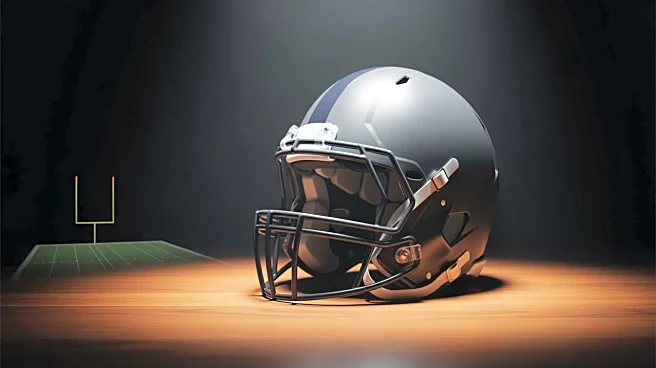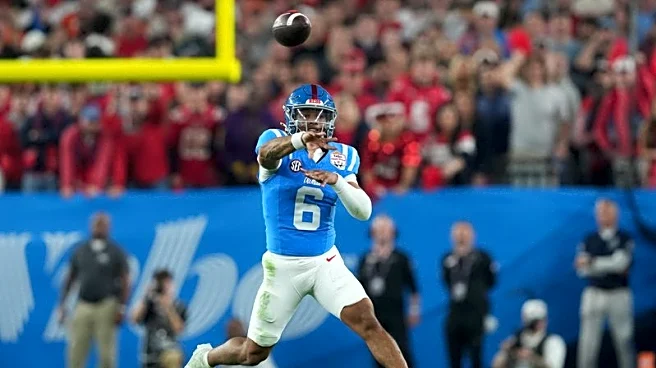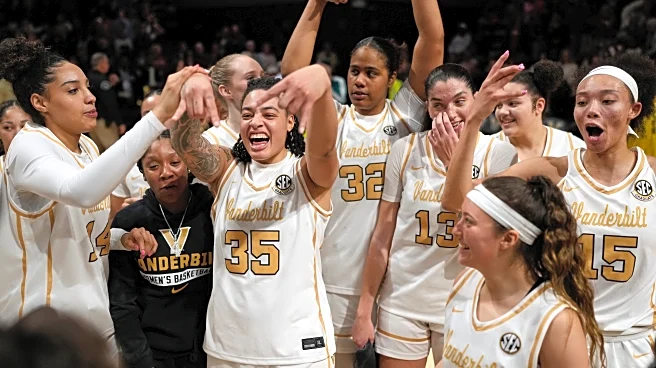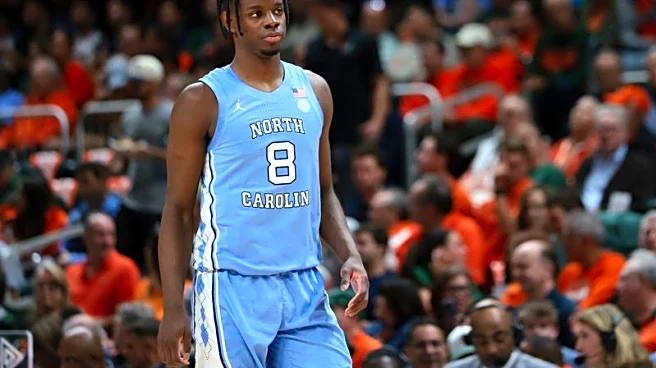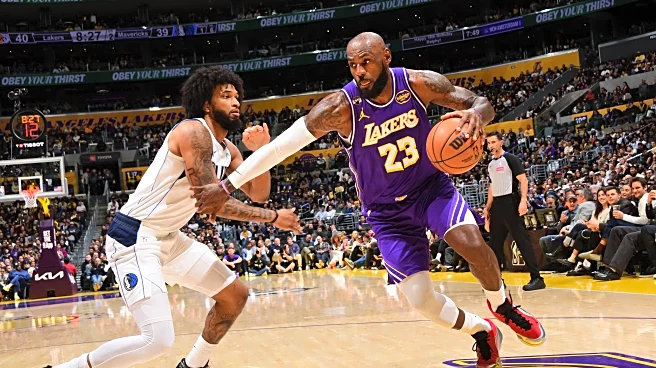What's Happening?
The college football coaching carousel is in full swing, with significant changes in how coaching jobs are perceived and selected. Historically, coaches moved to higher-profile schools for better opportunities,
but recent developments have altered this dynamic. Lane Kiffin, the Ole Miss coach, is a focal point of speculation, with potential offers from Florida, LSU, and Auburn. However, Ole Miss is now considered on par with these schools due to factors like expanded College Football Playoff, revenue sharing, and NIL payments. This shift reflects a broader change in the sport, where traditional hierarchies are less rigid, and schools like Ole Miss can offer competitive packages to retain top talent.
Why It's Important?
The evolving landscape of college football coaching jobs has significant implications for the sport. As schools like Ole Miss become competitive with traditional powerhouses, the criteria for what constitutes a 'good job' have shifted. This change impacts recruitment, team performance, and the overall competitiveness of the sport. Coaches now consider factors beyond salary, such as personal satisfaction and the ability to compete in the College Football Playoff. This could lead to more stability in coaching positions and affect how schools invest in their programs. The shift also highlights the increasing importance of NIL payments and revenue sharing in attracting and retaining coaching talent.
What's Next?
As the coaching carousel continues, schools will focus on securing top candidates before others do. The market is competitive, with many high-profile coaches potentially staying put due to improved conditions at their current schools. This could lead to a scramble for available talent, with schools locking in deals early to avoid missing out. The next few months will be crucial in determining the direction of coaching hires, with potential impacts on team performance and school reputations. The decisions made during this period will shape the future of college football, influencing how schools position themselves in the competitive landscape.
Beyond the Headlines
The changing dynamics in college football coaching jobs reflect broader shifts in the sport's culture and economics. The emphasis on NIL payments and revenue sharing indicates a move towards a more equitable distribution of resources, potentially reducing disparities between schools. This could lead to increased parity in the sport, with more teams capable of competing at high levels. Additionally, the focus on personal satisfaction and quality of life for coaches suggests a cultural shift towards valuing work-life balance, which could influence how schools structure their programs and support staff.
